Enrique Baca-García
Passive detection of behavioral shifts for suicide attempt prevention
Nov 14, 2020
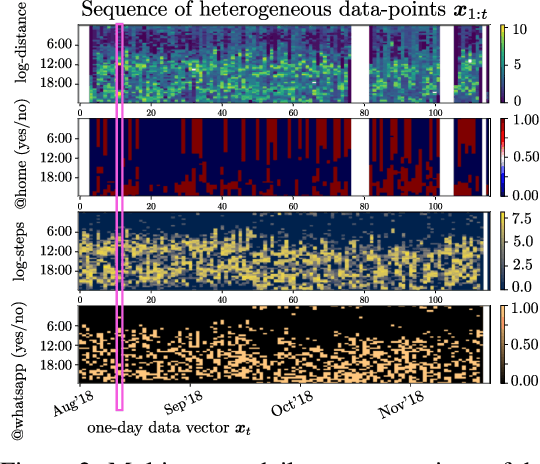
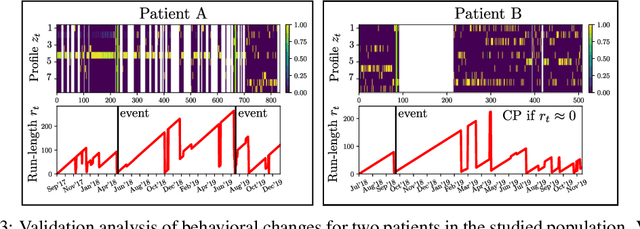
Abstract:More than one million people commit suicide every year worldwide. The costs of daily cares, social stigma and treatment issues are still hard barriers to overcome in mental health. Most symptoms of mental disorders are related to the behavioral state of a patient, such as the mobility or social activity. Mobile-based technologies allow the passive collection of patients data, which supplements conventional assessments that rely on biased questionnaires and occasional medical appointments. In this work, we present a non-invasive machine learning (ML) model to detect behavioral shifts in psychiatric patients from unobtrusive data collected by a smartphone app. Our clinically validated results shed light on the idea of an early detection mobile tool for the task of suicide attempt prevention.
Deep Sequential Models for Suicidal Ideation from Multiple Source Data
Nov 06, 2019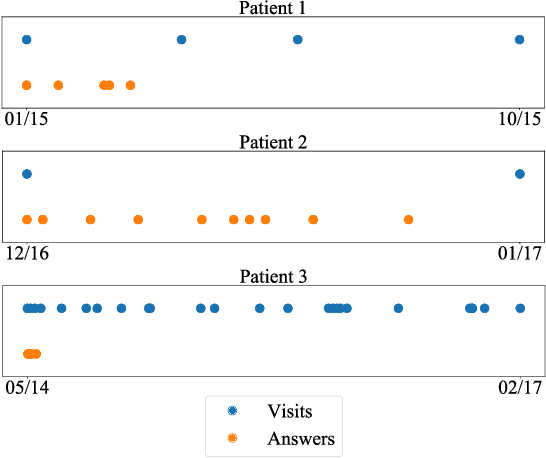
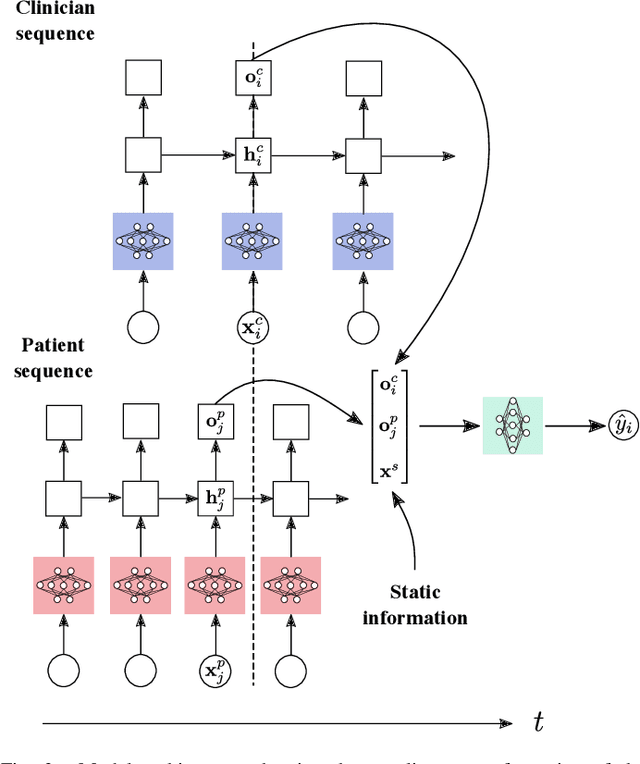
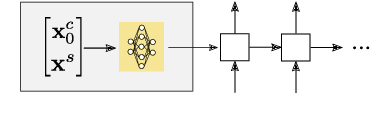
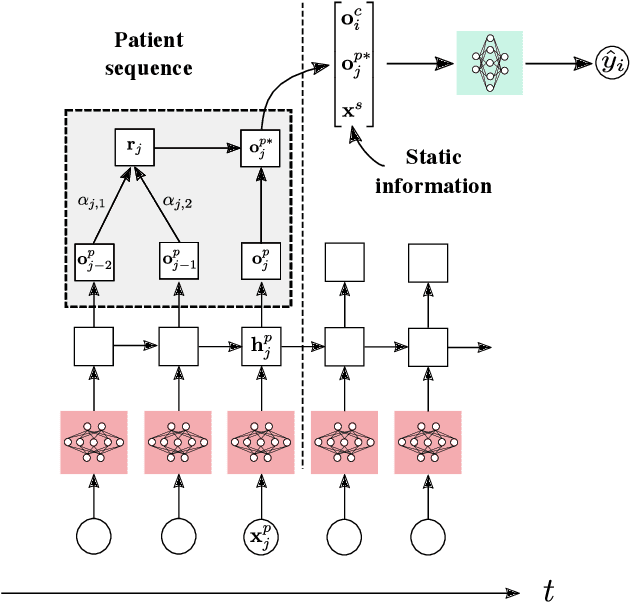
Abstract:This article presents a novel method for predicting suicidal ideation from Electronic Health Records (EHR) and Ecological Momentary Assessment (EMA) data using deep sequential models. Both EHR longitudinal data and EMA question forms are defined by asynchronous, variable length, randomly-sampled data sequences. In our method, we model each of them with a Recurrent Neural Network (RNN), and both sequences are aligned by concatenating the hidden state of each of them using temporal marks. Furthermore, we incorporate attention schemes to improve performance in long sequences and time-independent pre-trained schemes to cope with very short sequences. Using a database of 1023 patients, our experimental results show that the addition of EMA records boosts the system recall to predict the suicidal ideation diagnosis from 48.13% obtained exclusively from EHR-based state-of-the-art methods to 67.78%. Additionally, our method provides interpretability through the t-SNE representation of the latent space. Further, the most relevant input features are identified and interpreted medically.
* Accepted for publication in IEEE Journal of Biomedical and Health Informatics (JBHI)
 Add to Chrome
Add to Chrome Add to Firefox
Add to Firefox Add to Edge
Add to Edge